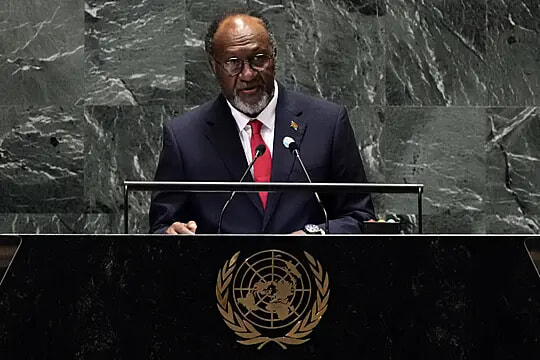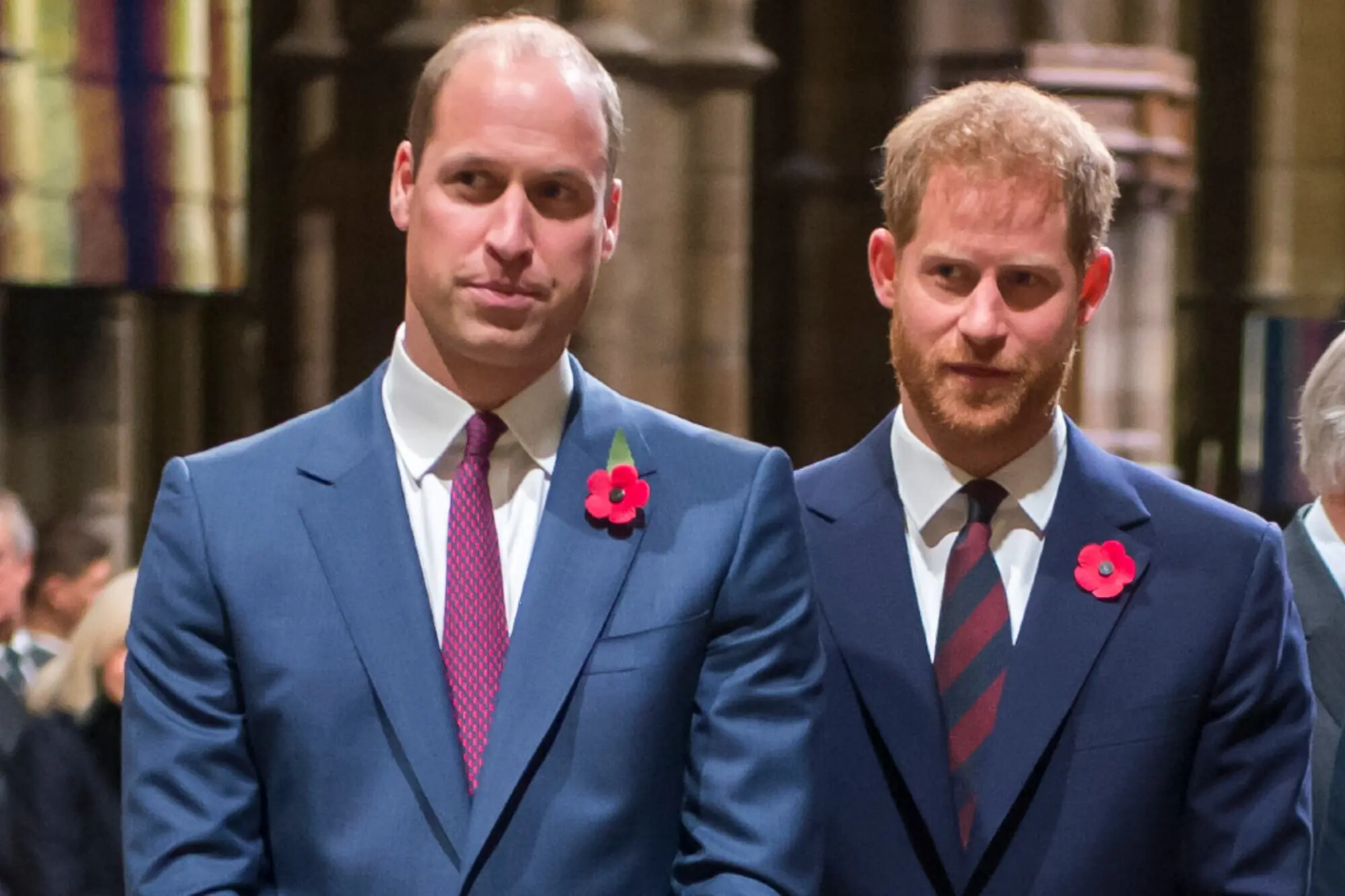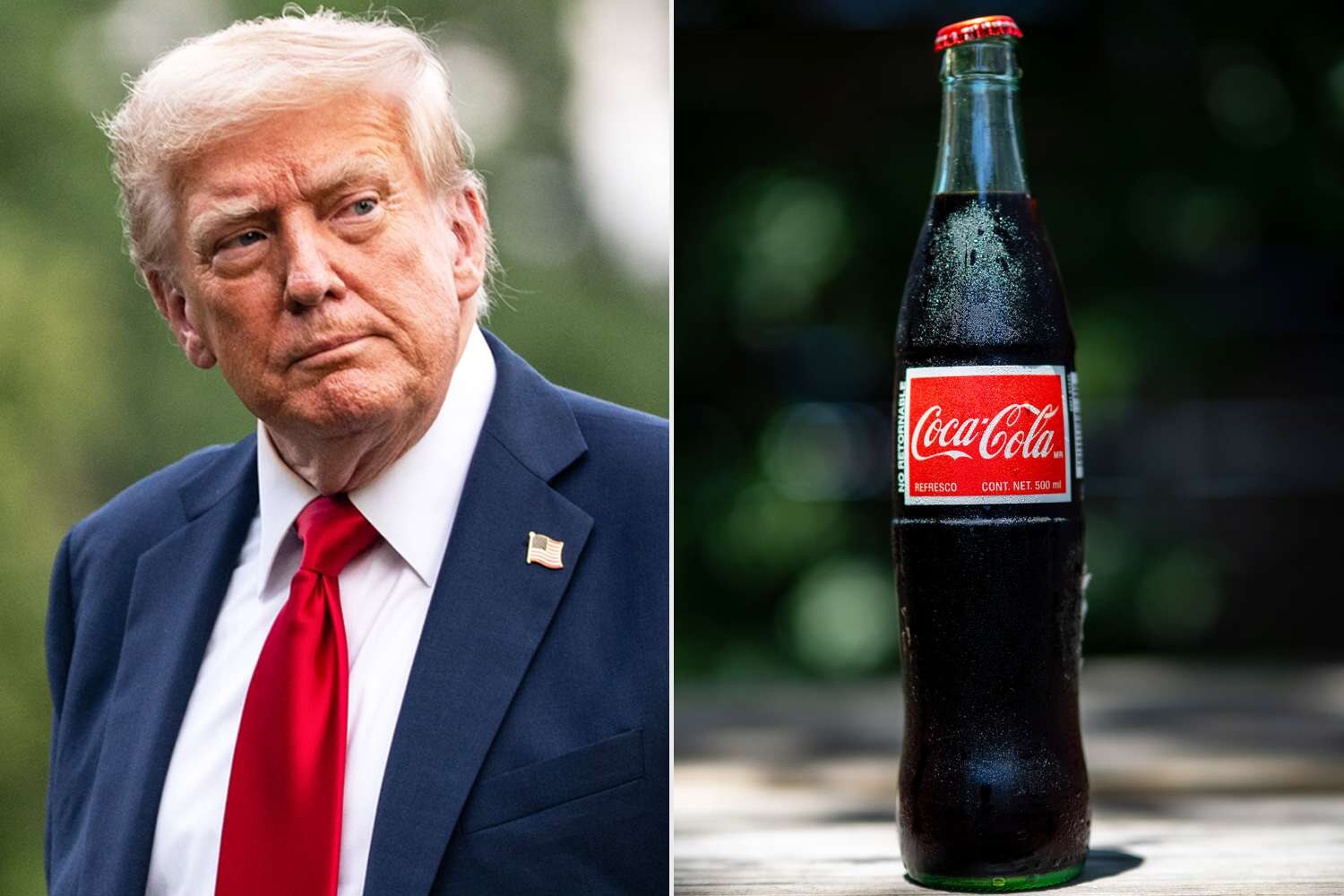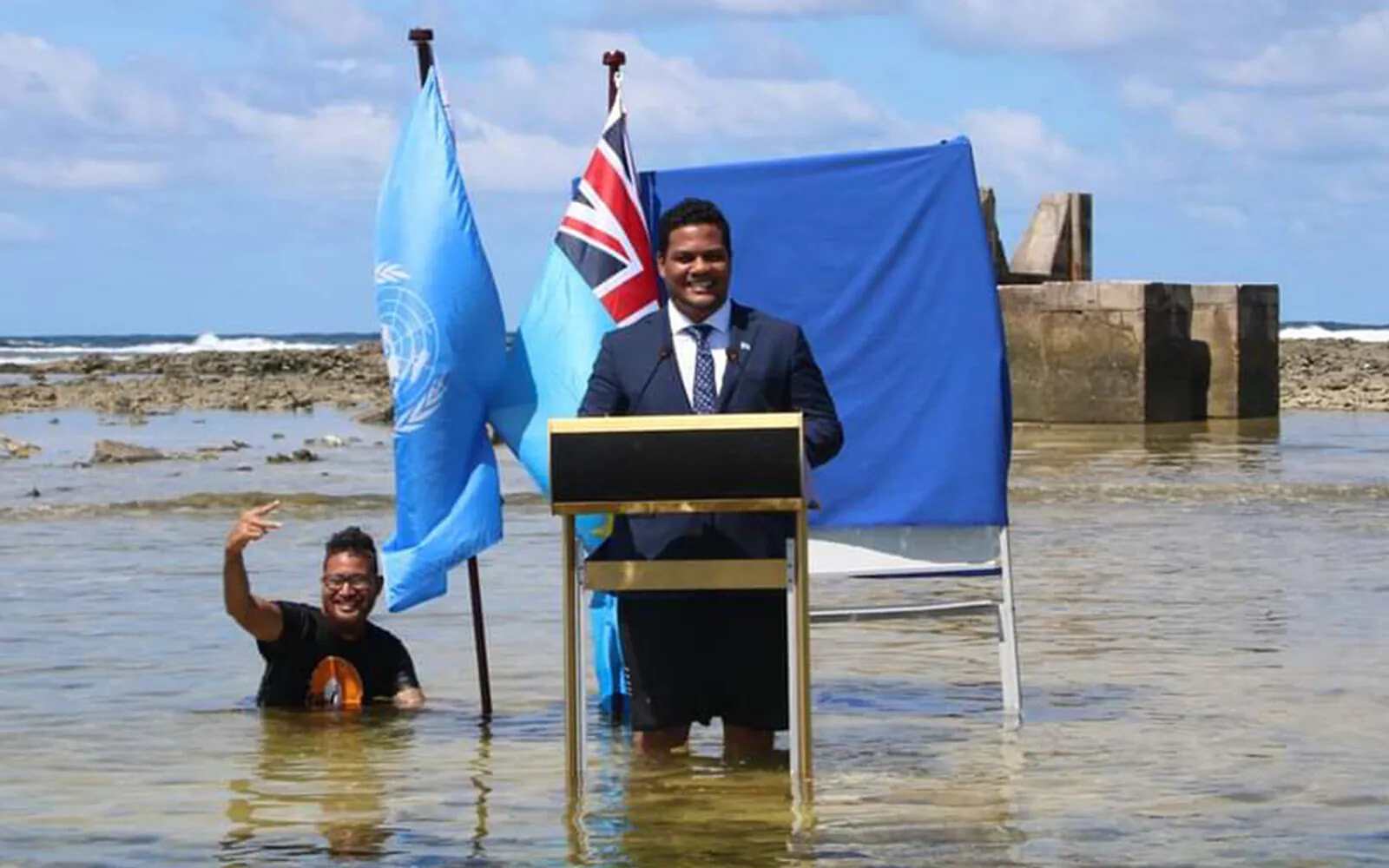
Over 1/3 of the Population on the Sinking Nation of Tuvalu is Migrating to Australia
This is crazy.
Published July 29, 2025
Advertisement
Advertisement
1. Nation Surrounded by Rising Water
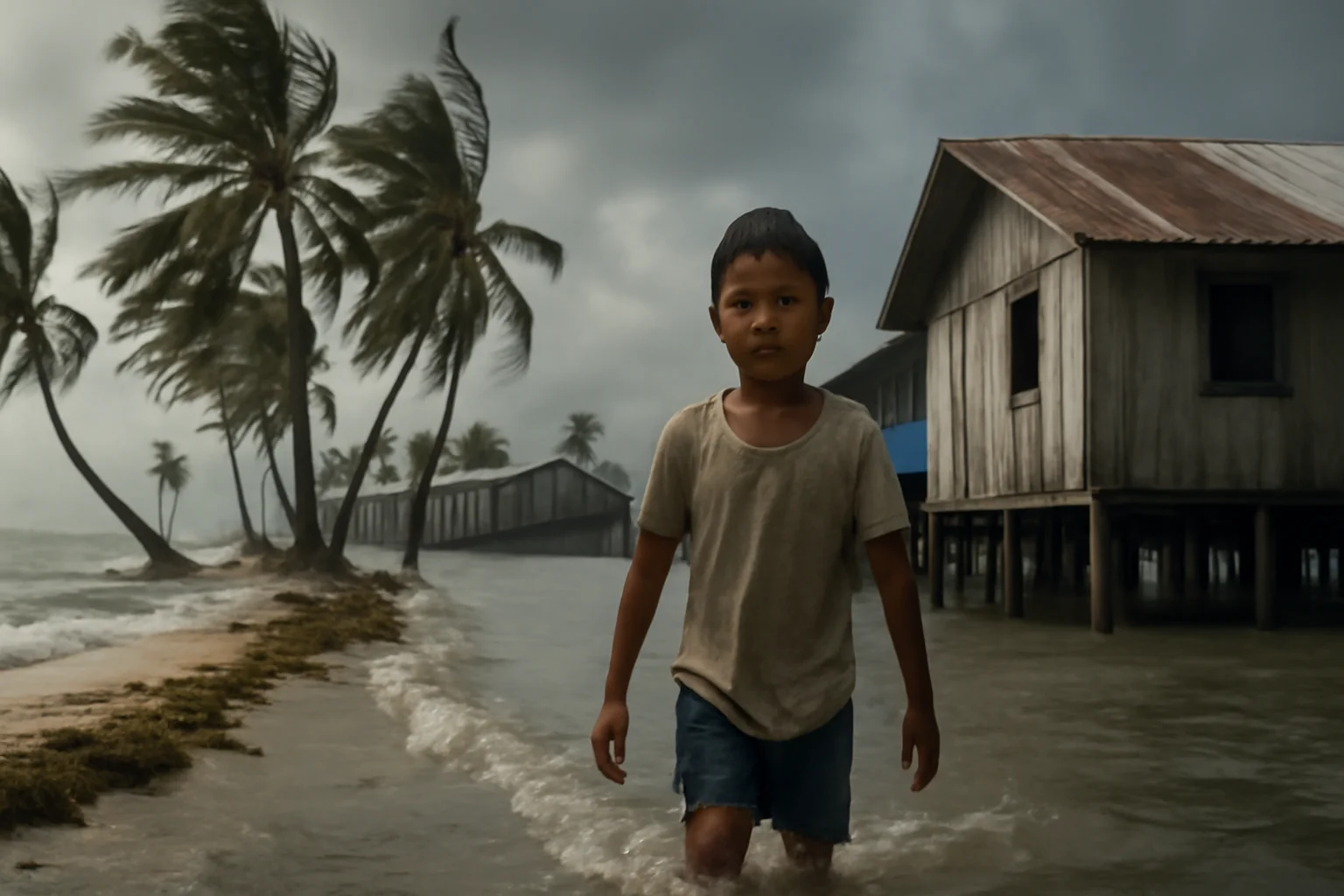
On the windswept atolls of Tuvalu, coconut palms bend low against the ever-encroaching tides, and the air carries stories of a country fighting to stay afloat. Tuvalu, with its chain of nine low-lying islands scattered between Australia and Hawaii, is home to about 11,000 people who now live at the front lines of the climate crisis. Year after year, the ocean creeps closer, with NASA’s projections warning that half of Tuvalu’s capital, Funafuti, will be submerged during high tides by 2050, and 95% of the land could face regular flooding by century’s end. The country’s mean elevation is barely two meters above sea level, and much of its critical infrastructure—homes, schools, freshwater supplies—already feels the pressure of saltwater intrusion and storm surges. For many Tuvaluans, daily life now includes building artificial land and raising crops off the ground to combat salinity, but such measures offer only temporary respite. In Funafuti, children wade through knee-deep water to reach stilted homes, as their parents weigh each season’s rising risk. Government and international agencies are racing to reclaim land and reinforce shorelines, but with the sea rising six inches in just three decades—one and a half times the global average—the pace of adaptation feels achingly slow. Villagers cling to narrow strips of sand, sometimes just 65 feet wide, where a single storm can turn land into lagoon overnight. Saltwater now threatens not just homes and roads, but also the very aquifers that sustain life, turning fresh water brackish and forcing families to innovate in real time. The threat is not abstract; it is visible in every eroded shoreline, every flooded classroom, every family sending a child to higher ground. As the tides continue their relentless push, Tuvalu stands as a stark symbol of climate change’s cost—an entire nation’s existence slipping into the ocean’s grasp.
Advertisement
2. Dreams of Escape
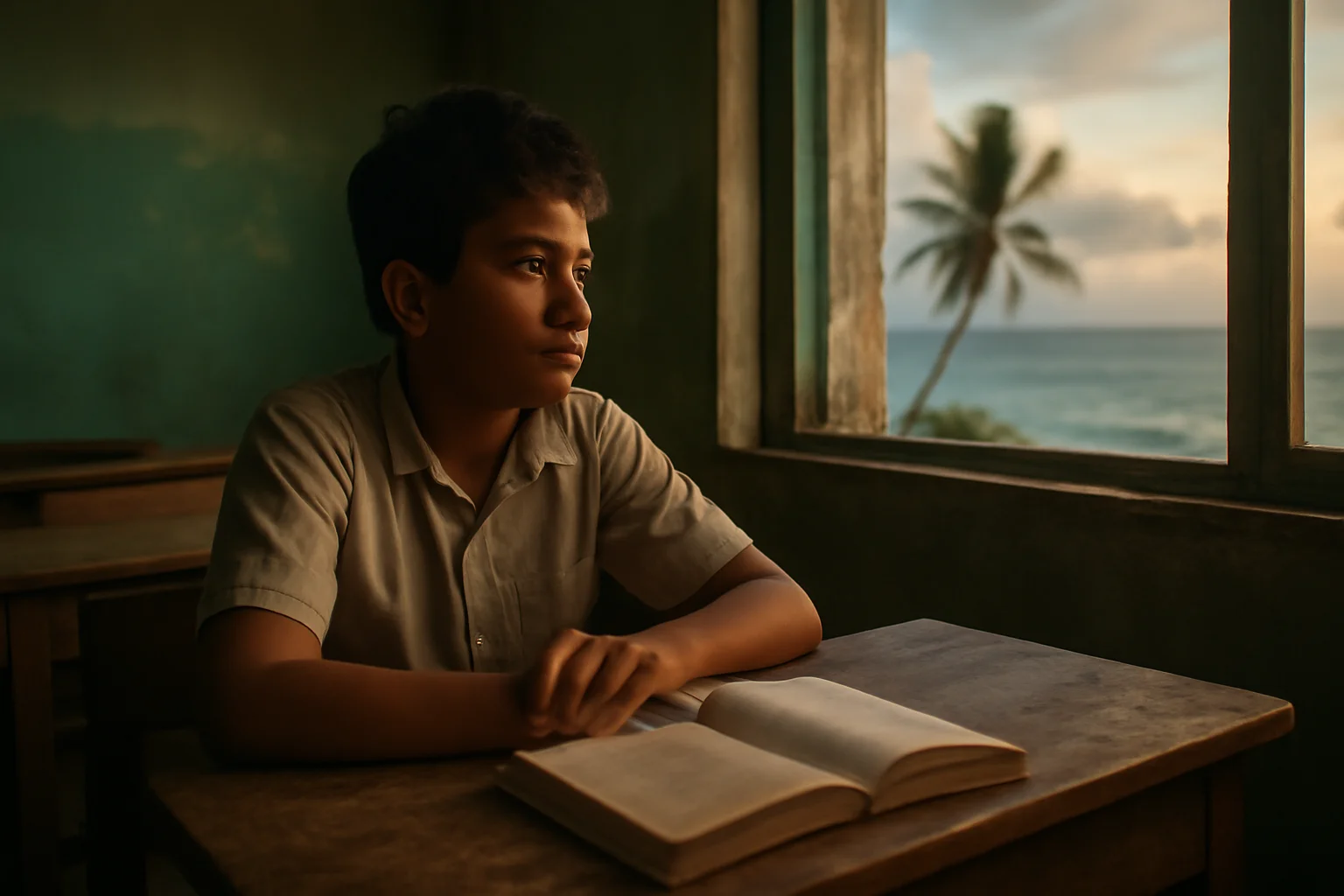
In the classrooms of Vaiaku, on the edge of Funafuti, thirteen-year-old Tekafa Piliota dreams of becoming a doctor—but he knows that dream could take him far from home. Education opportunities are limited on Tuvalu’s atolls; there are no universities, and jobs for young people are scarce, making higher education and career advancement a distant hope for many. Children and parents alike gaze across the Pacific, imagining futures in places where the ground does not shift with each tide and where disaster sirens do not interrupt daily life. The Falepili Union treaty between Australia and Tuvalu, announced in late 2023, has cracked open a door that never existed before: the chance for Tuvaluans to migrate with dignity, not as refugees, but as residents. The new visa program, the first in the world explicitly tied to climate change, offers a pathway to live, study, and work in Australia, with all the rights and benefits of citizenship. Australia’s government has committed to accepting 280 Tuvaluans per year through a random ballot, a system designed to prevent a brain drain but still provide a safety valve for those most desperate to leave. The response has been staggering; more than a third of Tuvalu’s population—over 5,000 people—applied during the first intake window, underscoring just how anxious families are about the future. For many, the lottery’s promise is not about fleeing forever but about finding opportunity: students who want to study, workers seeking stable jobs, parents who want a future for their children beyond the reach of the tides. The ballot comes with a $16 entry fee, and successful applicants will receive permanent residency in Australia, free movement between the two nations, and full access to healthcare, education, and social benefits. Tuvalu’s Prime Minister Feleti Teo called the agreement “groundbreaking” and “unprecedented,” but even as hope spreads, worries about loss of culture, identity, and sovereignty ripple beneath the surface. For Tuvaluan families, the prospect of escape is both a lifeline and a bittersweet dilemma—one that means saving their future, but perhaps losing a piece of their past.
Advertisement
3. The Ballot That Changed Everything
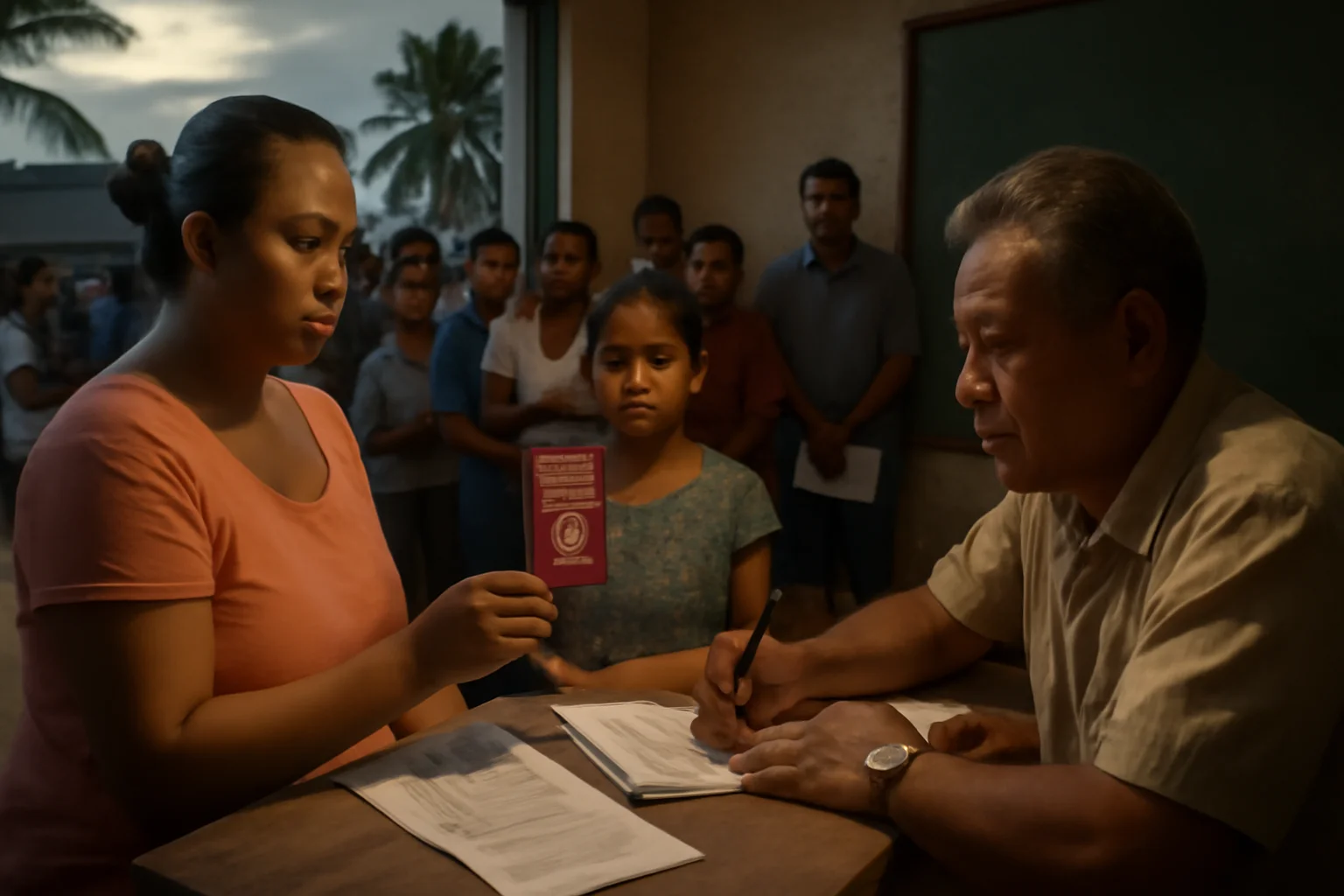
When the climate migration ballot opened on June 16, the anticipation was palpable across Tuvalu’s sandy villages and wind-bent schools. Families gathered, passports in hand, to fill out forms that might secure their place in the inaugural migration wave—an exodus not driven by war or economics, but by water rising in the night. Within four days, a third of the country had registered for a chance at escape; as the deadline approached, the tally passed 5,000 applicants, a figure that startled even the country’s ambassador to the United Nations. Australian officials hailed the program as the world’s first agreement offering “mobility with dignity” in the face of climate change, and leaders from both nations celebrated a partnership built not just on necessity but on mutual respect. The Falepili Union treaty also binds Australia to defend Tuvalu against natural disasters, health emergencies, and even military aggression, reinforcing the security net beneath this bold new migration path. Successful visa recipients will be able to return home as often as they wish, keeping the two-way flow of people and culture alive, at least in theory. Australian supports for new arrivals will be extensive: access to Medicare, education at the same subsidized rates as citizens, and social services designed to smooth their transition. For young Tuvaluans like Hope Aoga Kofe, who dreams of being a flight attendant, or Letiu Afelee, a father of five hoping for his sons to thrive, the ballot represents both hope and heartbreak. Critics have raised concerns about the process’s secrecy, the potential for cultural loss, and whether Australia’s “recognition” of Tuvalu’s future statehood truly protects its sovereignty if the land disappears. Yet for many on the islands, the need for a way out is urgent: “If the predictions are true, and in 50 years Tuvalu is underwater, then we need to have a way out,” Afelee said. The closing of the ballot, with thousands anxiously awaiting results, marks a turning point for a country choosing between survival and belonging.
Advertisement
4. Culture at the Crossroads
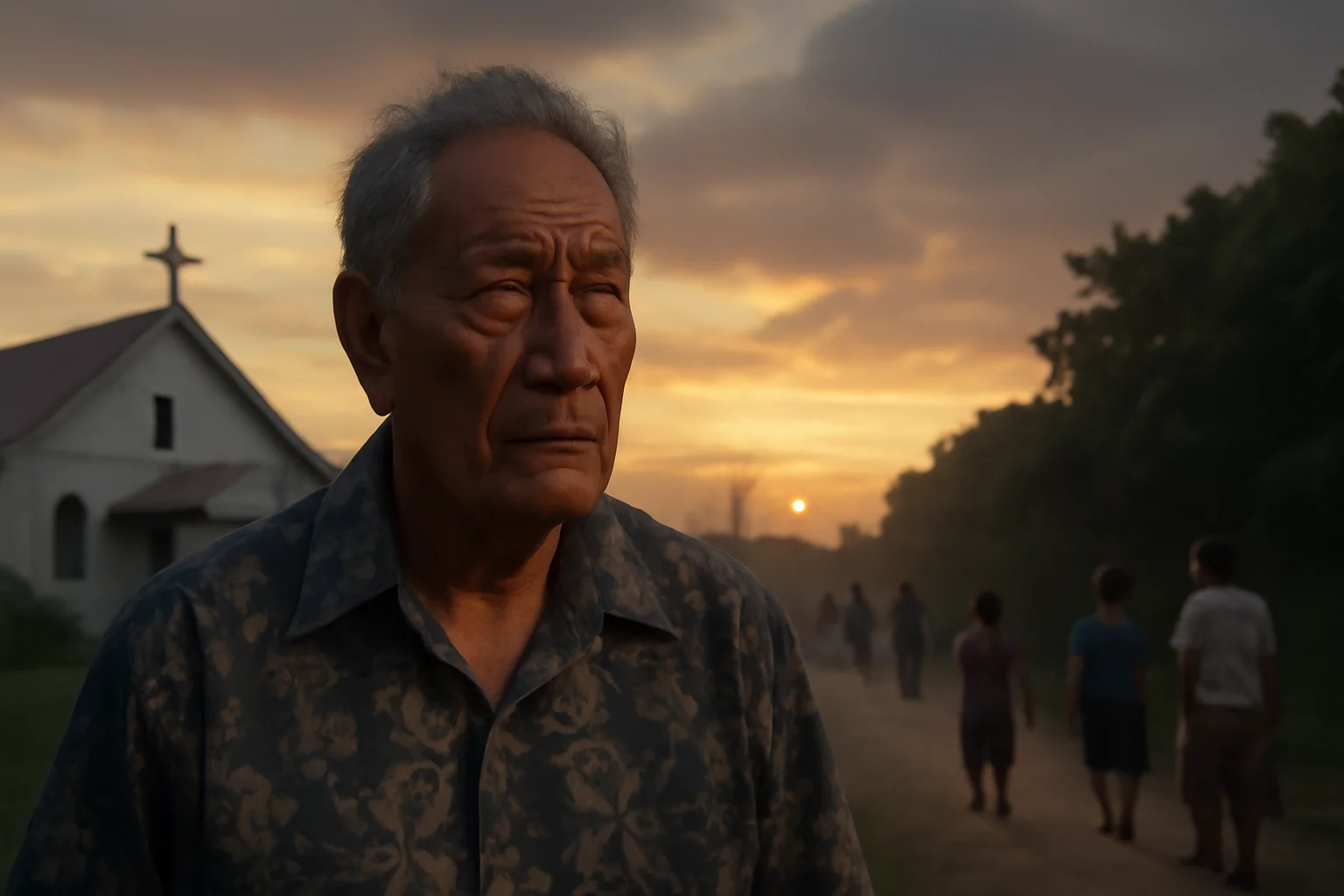
As excitement swells about the migration pathway, so do fears that Tuvalu’s culture and knowledge could drain away with its people. Village elders and local leaders caution that the exodus of teachers, pastors, artisans, and youth could leave empty churches, struggling schools, and weakened community ties. Each Tuvaluan who leaves, especially those in key roles, takes with them not only skills but also the stories and traditions that have knit this oceanic society together for centuries. Researcher FotuoSamoa Tiatia warns that the treaty may lead to “substantial flow over time,” risking gaps in leadership and the fragile web of customs passed down through generations. Some former leaders, including ex-Prime Minister Enele Sopoaga, have openly criticized the treaty’s negotiation process, calling it secretive and a potential erosion of national sovereignty. He argues that climate assistance bundled with military and security guarantees could give Australia undue leverage over Tuvalu’s internal affairs, a sentiment echoed by regional security experts. Despite these concerns, Prime Minister Teo maintains that the two-way nature of the pathway, allowing free travel, will help preserve Tuvaluan identity even as migration accelerates. Others, like principal Kainaki Taula at Nauti Primary School, see the program as both a blessing and a burden—giving students opportunities abroad but forcing families to choose between security and roots. Land reclamation projects and climate adaptation efforts continue at home, but every conversation circles back to a single question: what does it mean to belong to a country that is vanishing? Australia’s treaty recognizes Tuvalu’s “future statehood,” even after physical land is gone, but the mechanics of a nation in exile remain uncertain and untested. For those waiting on the ballot’s outcome, hope and worry intertwine, as the country stands on the edge of a cultural crossroads.
Advertisement
5. In the Face of Extinction
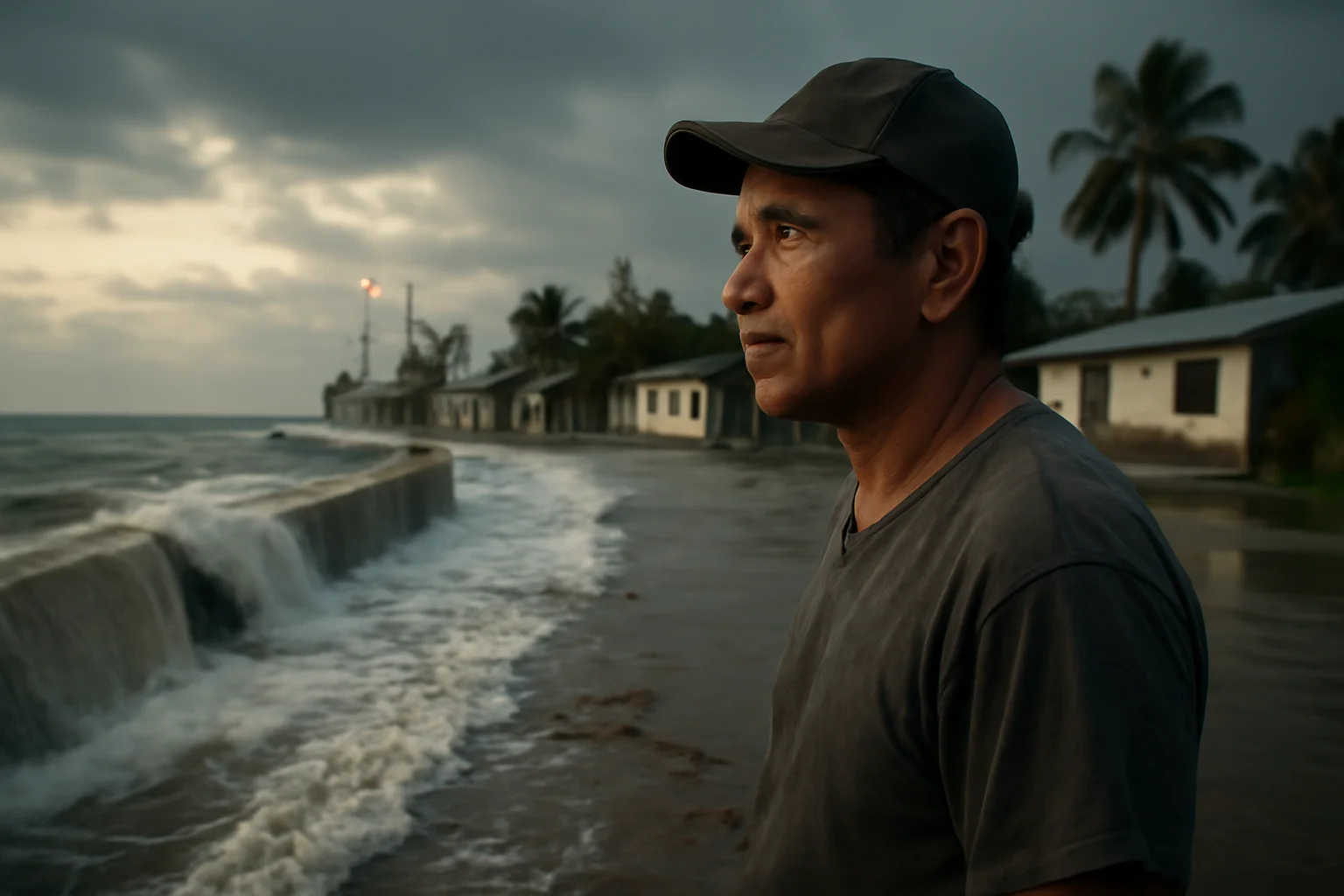
The existential threat facing Tuvalu is no longer a distant forecast—it is a reality measured in lost land, salinized crops, and dwindling freshwater. Tuvalu’s leaders have publicly declared that “internal relocation is not an option,” since there is no higher ground, no place to retreat. Funafuti, the nation’s capital, has expanded artificial land and raised flood-resistant barriers, but such defenses can only delay the inevitable as tides continue their upward march. The country’s mean elevation, barely six feet above sea level, means every cyclone, every high tide, chips away at the margin between habitation and disaster. Even as land reclamation projects add precious acres, NASA predicts that most of Tuvalu’s infrastructure will be below high-tide level by 2050, spelling disaster for homes, schools, clinics, and roads. As the sea advances, saltwater infiltrates freshwater aquifers, making the basic act of drinking or farming a daily struggle, forcing innovation and resilience on an unprecedented scale. The government’s adaptation projects, including raised land and reinforced shorelines, are milestones of survival, but experts caution they offer only temporary protection in a world of unchecked climate change. For families, every high tide brings fresh anxiety, every flooded home a reminder that time is running out, and every ballot entry a gamble for survival. For the nation as a whole, the decision to migrate is not just about seeking safety—it’s about the fear of extinction and the hope for continuity in a new land. While international treaties and foreign aid offer support, Tuvaluans know that only collective action on climate change can truly change their fate. The migration ballot may offer hope, but the reality is a stark warning to the world: no country, however small, can escape the consequences of rising seas.
Advertisement
6. Australia’s Big Promise

For Australia, the Falepili Union treaty is both a diplomatic milestone and a moral test. The deal, announced in 2023, commits Australia not only to providing climate migration pathways but also to defending Tuvalu militarily and supporting the country during natural disasters. Prime Minister Anthony Albanese hailed the agreement as proof that “Pacific partners can rely on Australia as a trusted and genuine partner,” aiming to strengthen regional stability and counter China’s growing influence in the South Pacific. Australia has legally pledged to recognize Tuvalu’s statehood and sovereignty even if the islands disappear, a first in global climate agreements. The treaty also addresses economic concerns, promising financial support, development aid, and disaster relief to help Tuvalu adapt and recover from climate shocks. Migrants who arrive in Australia will find a safety net: health care, subsidized education, and integration programs designed to smooth their transition and honor their heritage. This partnership is more than transactional; it is intended to create a new model for climate mobility, one that respects dignity and self-determination. Yet, critics argue the pace of implementation and transparency must improve, and warn of possible tensions if migration outpaces community integration. Australia’s commitment to support other Pacific nations with similar arrangements signals a future where climate-driven migration may reshape regional demographics and alliances. While the world watches to see how this experiment unfolds, both countries know the stakes are high—not just for Tuvalu, but for all vulnerable nations facing climate catastrophe. For Tuvaluans, Australia represents both a sanctuary and a stage for preserving their identity, even as their homeland slowly slips beneath the waves.
Advertisement
7. Dignity in Displacement
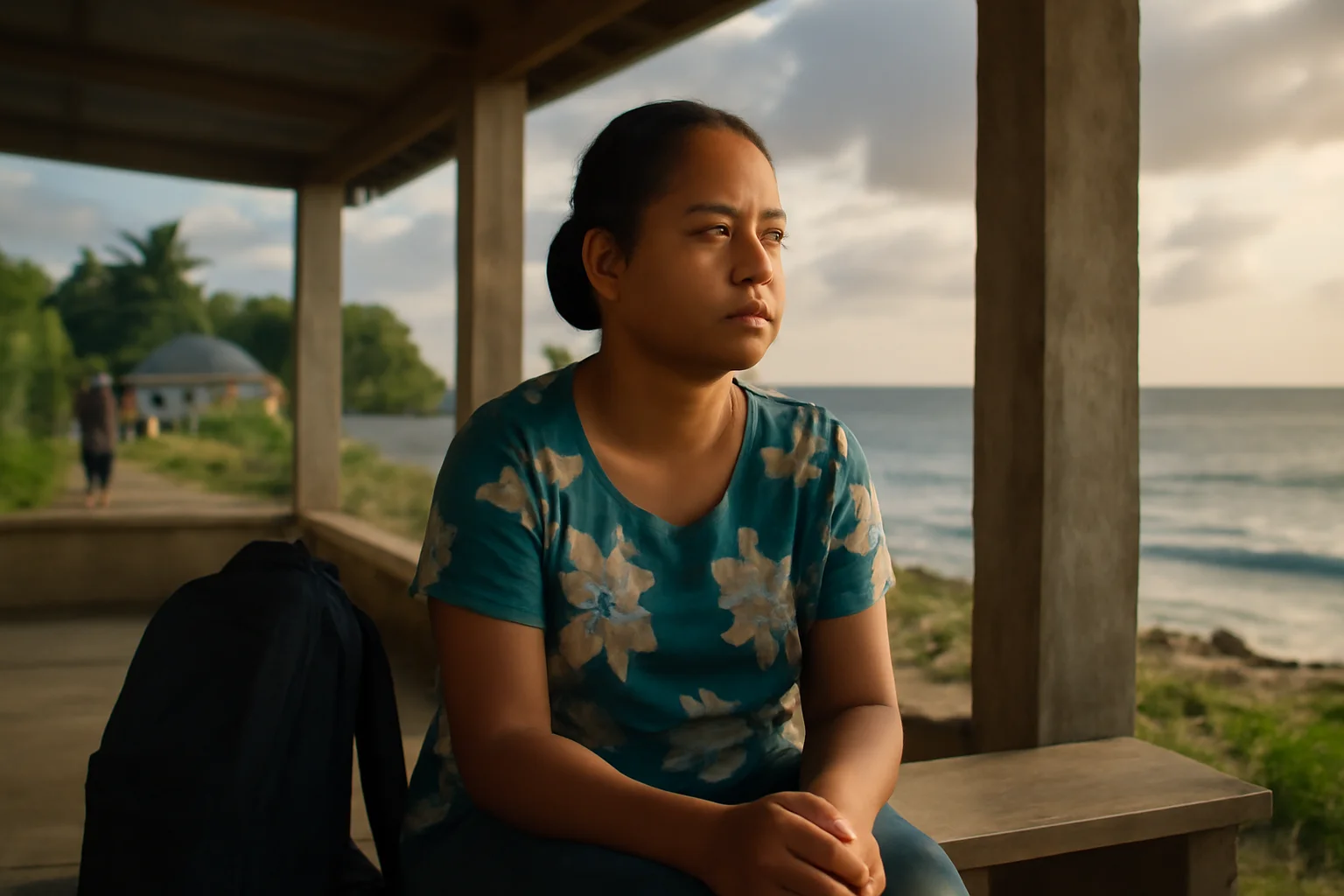
The notion of “mobility with dignity” lies at the heart of Tuvalu’s migration pathway, challenging the global narrative of climate refugees forced to flee in desperation. Unlike other migration schemes, the Falepili pathway grants permanent residency before departure, ensuring Tuvaluans arrive in Australia with full rights and access to public services. The design allows for return visits, letting migrants maintain ties with their homeland and resist the pull of permanent exile. For young people like Adriana Pedro Tausau, the opportunity means more than just escape; it is a promise of health, education, and economic stability for themselves and future generations. The two-way model is intended to keep families connected, preserve language and culture, and give migrants agency in shaping their new lives. Community leaders in Tuvalu work to prepare residents for the future, balancing the need to equip youth for success abroad with the hope that they will someday return and contribute to rebuilding their nation. Yet, concerns remain about how easily Tuvaluans will adjust to a new country, and whether the social fabric of their homeland will unravel as more people depart. Permanent residency offers stability, but integration in Australia is not without challenges—Tuvaluans must adapt to new customs, languages, and expectations while holding on to their heritage. Despite these uncertainties, many see the pathway as a triumph of agency over victimhood, a rare chance to shape their own destinies in the face of global forces. For a nation on the edge, the ability to choose migration rather than be driven by disaster is a powerful statement of resilience. As ballots are counted and families prepare to move, the idea of dignity in displacement reshapes what it means to survive in a changing world.
Advertisement
8. The Shadow of Loss
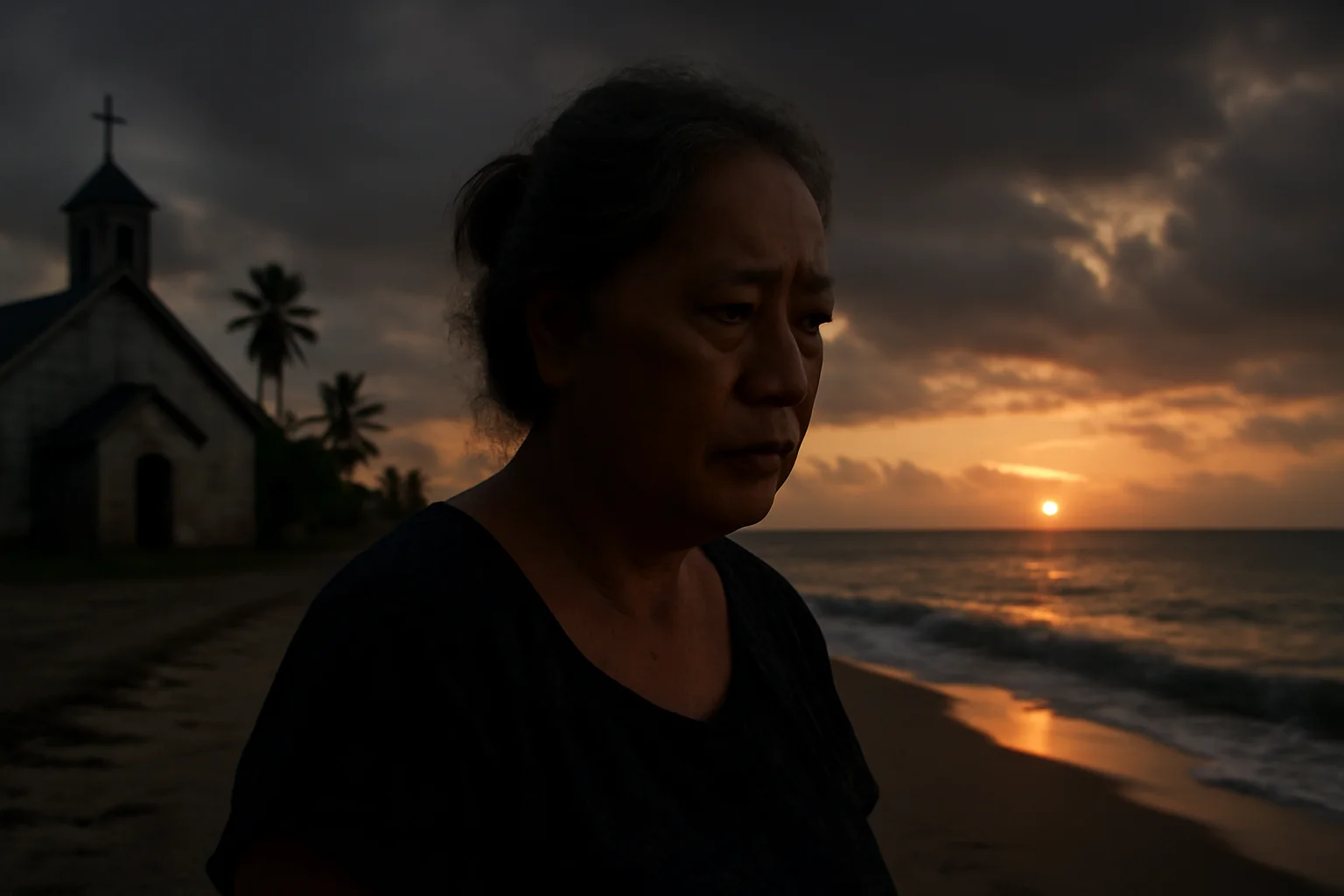
Even as hope grows, the shadow of loss looms over Tuvalu’s future. Many fear that the steady departure of citizens will hollow out local communities, weakening traditions, spiritual life, and the support systems that define daily existence. Churches, schools, and village gatherings could shrink as families leave, and the transfer of skills and customs from elders to youth may falter with each generation that settles abroad. Some critics call the migration scheme a form of “modern-day colonialism,” warning that the treaty’s security and economic provisions may ultimately benefit Australia more than Tuvalu. There are lingering doubts about whether promises of sovereignty and cultural preservation can be kept if the physical nation is lost and its people dispersed. Others note that the legal recognition of “digital sovereignty” by Australia, allowing Tuvalu’s government to operate online even after land is gone, is an unprecedented but untested concept. Parents and students at Nauti Primary School talk openly about missing home, the smell of sea breezes, the rhythm of island life, and the sense of belonging that no treaty can replace. For many, the greatest loss is not land but the slow fading of identity, as memories and traditions become harder to maintain from afar. Yet, the alternative—remaining on sinking islands, watching each flood wash away more of the past—feels equally unbearable. The migration pathway may preserve the people, but the world must still reckon with what is left behind. As the ballot’s winners are chosen and the first migrants set out, Tuvalu faces the profound question of what it means to be a nation without land.
Advertisement
9. Setting a Global Precedent
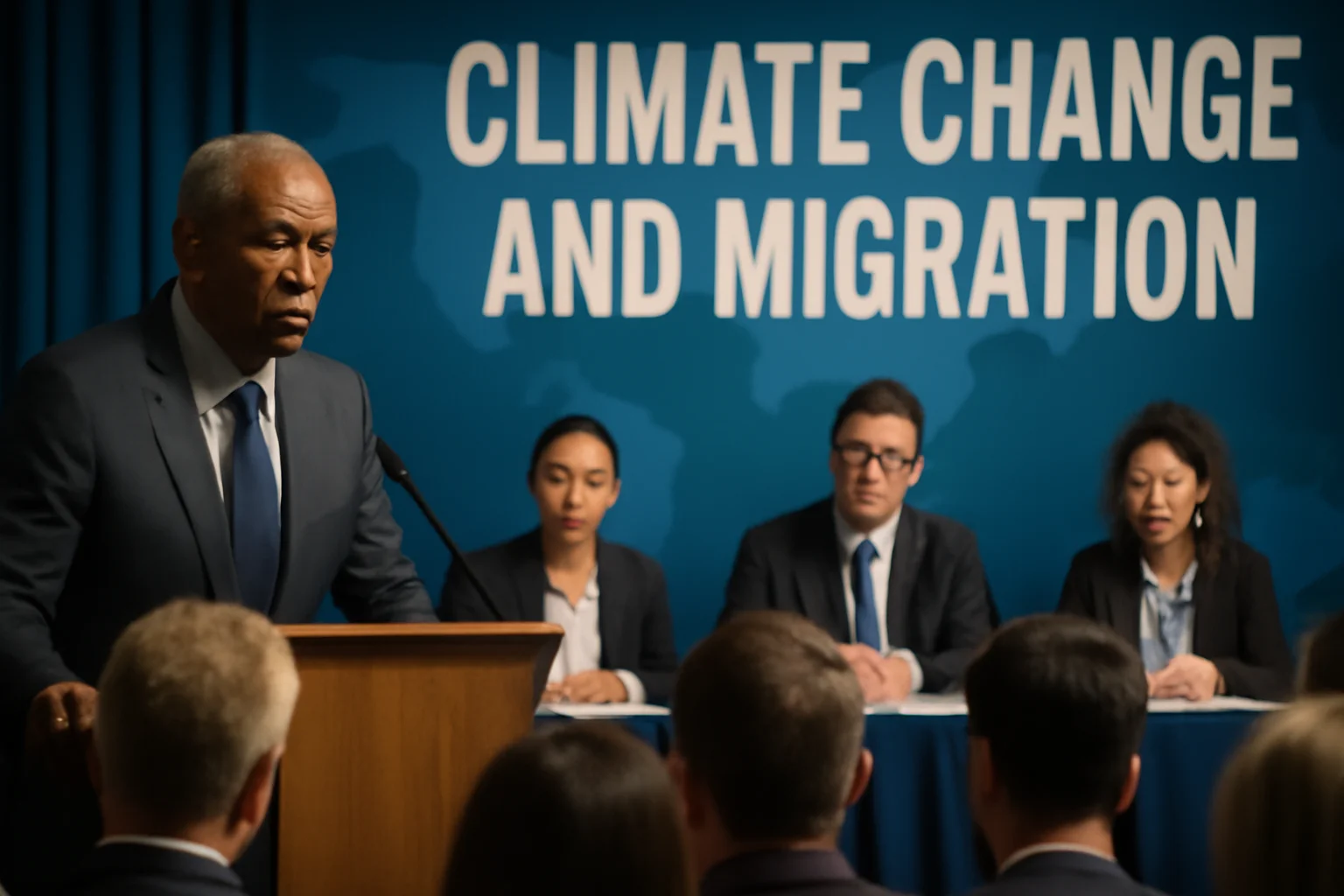
The Tuvalu-Australia migration pathway has captured the world’s attention, setting a precedent for climate-induced migration and statehood in the era of rising seas. Never before has a nation’s right to survive beyond its geography been formally recognized, and other vulnerable countries, such as Kiribati, may soon follow. Climate activists, policy makers, and scholars are watching closely to see if the Falepili treaty can serve as a blueprint for future agreements between at-risk nations and host countries. The pathway’s cap of 280 migrants per year is meant to avoid brain drain and ensure a manageable integration process, but long-term effects remain uncertain. If migration continues at current rates, nearly 40% of Tuvalu’s population could leave in the next decade, changing the country’s demographics and diaspora forever. Australia’s willingness to expand similar deals in the region signals that climate mobility will become a central issue in international relations and humanitarian planning. Meanwhile, Tuvalu’s digital sovereignty experiment raises new questions about how nations can persist in the cloud, preserving culture, law, and governance even as land vanishes. Global leaders debate whether such arrangements protect or undermine the rights and identities of small nations, balancing adaptation with autonomy. As more countries face climate-driven displacement, Tuvalu’s story stands as both a warning and a hope—a test of what the world is willing to do to protect its most vulnerable peoples. The success or failure of the Falepili pathway will echo far beyond the Pacific, shaping how humanity confronts the shared challenge of a warming world.
Advertisement
10. A New Chapter for Tuvalu
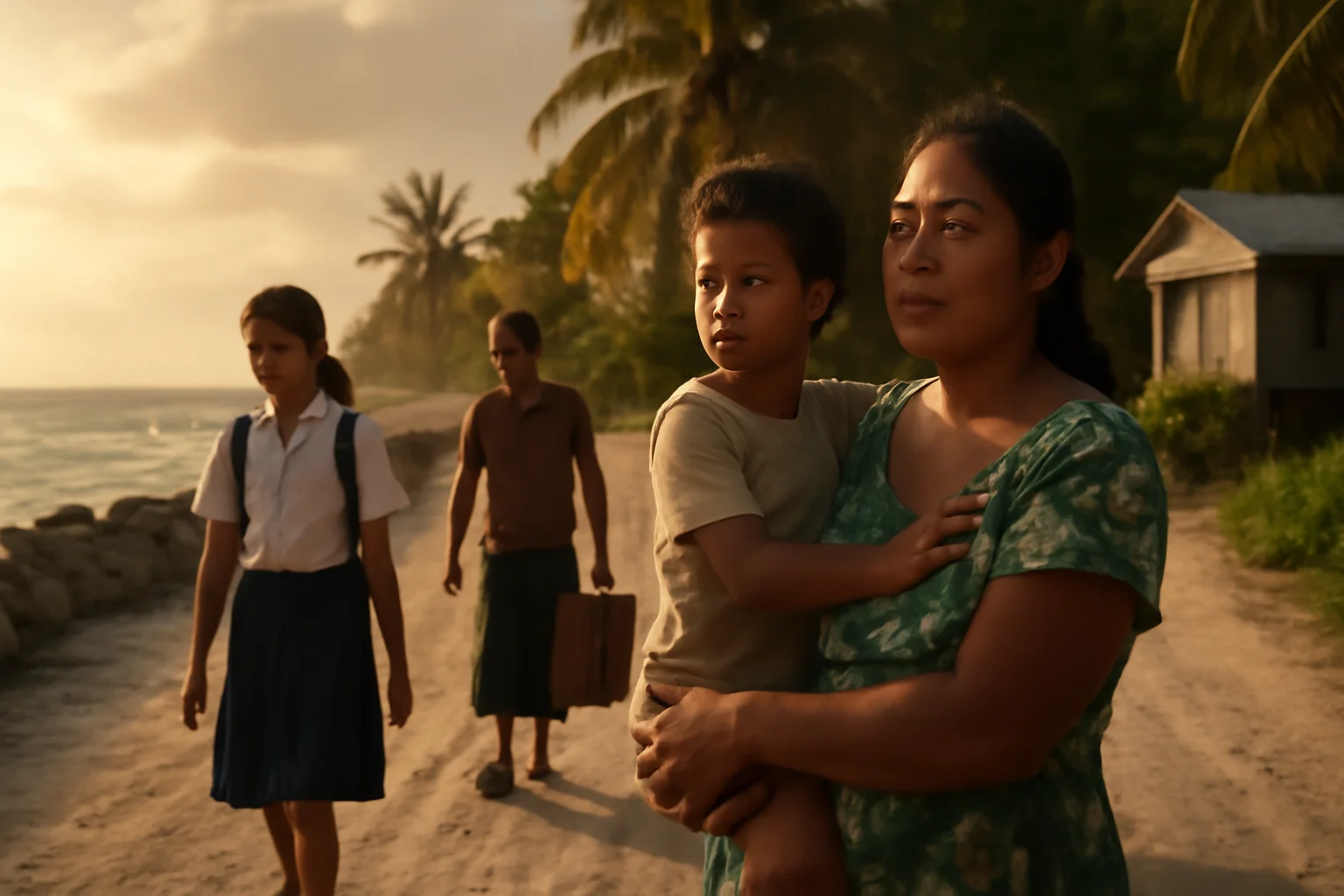
For Tuvalu, the migration ballot marks not just a policy milestone, but the start of a new chapter—a story of adaptation, resilience, and the search for belonging. As the first families prepare to move, they carry the weight of their ancestors and the dreams of future generations, forging a bridge between a vanishing homeland and an uncertain horizon. Australia’s open door offers hope, but also the challenge of integrating newcomers without erasing the culture they carry. At home, Tuvalu’s leaders continue to fortify shorelines, reclaim land, and build for a future that is both digital and physical, determined to preserve identity even as the ocean rises. Young students still walk the sandy lanes of Vaiaku, balancing studies and daily chores with the knowledge that their world may soon change forever. For parents, the decision to enter the ballot is one of both hope and heartbreak, weighing safety against separation, opportunity against loss. As ballots are drawn and visas granted, the world’s first planned migration due to climate change becomes reality—a living lesson for nations everywhere. Tuvalu’s journey is not over; it is being rewritten every day by those who stay and those who go, united by love for a land that may someday exist only in memory and digital archives. In this struggle for survival, Tuvalu has chosen dignity, agency, and a chance to endure, even as the waves threaten to erase its shores. The island nation’s story stands as a beacon—an urgent reminder that the fate of the vulnerable is a test for us all.
Advertisement
Advertisement
You May Also Like


